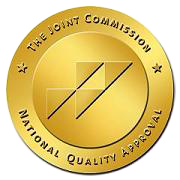Seven ED and BED Myths & Truths
By Lindsey Hall
One of my favorite topics in the world of recovery is the myths and stigmas surrounding eating disorders. Because of my work, and how often I write and talk about my experiences with eating disorders, I’m often met with interesting -- or just plain comical -- questions about why someone has an eating disorder, what motivates it. I also hear more harmful comments reflecting a real misunderstanding of what an eating disorder looks like and who has one.
I recruited a couple of advocates in the field to share common myths and misinformation about eating disorders. These common myths are presented here so that if you happen to hear one, or if someone asks you about your or a loved one’s eating disorder, hopefully you will know that you’re not alone and many of us have had to hear and respond to comments like these. In a world still full of stigmas about eating disorders, we do note that the tides are changing. People are becoming more aware that eating disorders are complex mental conditions, but it’s only by having conversations like this -- dispelling myths – that we can undo some of these stereotypes. Following are a few common myths and stereotypes about eating disorders.
Myth 1: Eating disorders are about trying to be thin.
A few months ago I was at JFK Airport, writing a blog on eating disorders at a makeshift cafe in Terminal C, when a man next to me pointed at my screen and said, “heavy stuff.” I looked at him, surprised he’d make a comment in the first place, but I decided to respond. As we began to chat, he asked why I wrote about eating disorders and I mentioned that I’d had one and gotten help and delivered my usual spiel about recovery and all that I do. He paused, taking it in, and said, “But why? You look [insert comment on my body].”
A triggering comment for anyone, but it happens often because most people hold a particular stereotype about eating disorders, which is that the only reason a person would have one is to achieve a certain body frame.
While I told him that he was not wrong per se, I did want what I thought was a socially acceptable body, I took a few minutes to explain that the motives behind an eating disorder and the cycle itself often evolve into other fillers and coping habits. I told him that it stops being about weight at some point and becomes more just a way of life. An alteration in the brain. A coping skill for daily living. I think more people should know that so that we cut out the narrative that it’s only about trying to be or stay thin.
Myth 2: Eating disorders are rooted in vanity.
This is my personal favorite “cringe” myth. While to some degree I understand how the vanity narrative became associated with eating disorders, I feel it’s such a shallow commentary on why an eating disorder develops and it simplifies what becomes a complicated sickness to recover from. By assuming that an eating disorder is rooted in vanity, we negate the physical consequences of the eating disorder and what happens to the brain while actively living in the cycle of an eating disorder.
Myth 3: Gender dysphoria and eating disorders are not linked.
This is a dangerous myth that often leads to further trauma and marginalization for trans and nonbinary people. There have been many studies that support the link between the use of eating disorder behaviors as a way for individuals to cope with gender dysphoria. Often a lack of understanding in providers about gender identity and eating disorders keeps trans and nonbinary individuals from receiving appropriate and affirming care. It is important to treat gender dysphoria and the eating disorder at the same time. Frequently, only the eating disorder is addressed and individuals with gender dysphoria are left to experience greater dysphoria.
Myth 4: Recovery means you don’t struggle anymore.
As Say It Brave member and recovery advocate Eric Dorsa said, “Recovery is not a destination to the land of never struggling again.”
I really did have a very naive view of recovery when began treatment in 2013. I thought that after a couple months I’d be eating disorder-free. And so when urges and habits came up, the incessant need to count calories still a monkey on my back, I really struggled with whether the treatment had worked at all.
As Eric related, “So often in my recovery I felt ashamed or that I must be doing something wrong because I was still having body image struggles and eating disorder thoughts. Life is life, and life is hard. Struggle and recovery are not opposites. I am still in recovery if I am struggling and still deserving of help and a community where I can openly share my struggles. For me, recovery is about accepting myself as whole and worthy, especially in the depths of struggle.”
I couldn’t have said it better.
Myth 5: Binge eating disorder (BED) is an excuse for not losing weight.
Kara Richardson Whitely, a Say It Brave member and BED recovery advocate, submitted this myth about binge eating being an excuse for not losing weight.
As she puts it: “To the contrary, BED is a bonafide eating disorder, and recovery is possible. But this is not a conversation about willpower and weight. Recovery includes conversations about boundaries, self-worth, trauma, and more. It's about breaking out of the shame cycles of binge eating, finding healing and community, and rekindling the things that bring you joy.”
Myth 6: All people with BED are overweight.
Many people are surprised that binge eating behaviors can be present in people of all body sizes. BED does not necessarily equate immediately to being in a larger body, but it is usually portrayed that way in the media and on television.
Myth 7: BED is not common.
BED is more prevalent than anorexia and bulimia combined yet it’s a disorder that most people choose not to talk openly about.
For me, I lived in what I refer to as the cycle of an eating disorder, so BED was part of my disorder but it wasn’t my main urge. It was simply a behavior that I interchanged with others. However, for some BED is their main eating disorder and it’s much more common than people realize. So know that if you're struggling with BED, you’re not alone.
If you or someone you know is struggling with an eating disorder, you’re not alone. There is help. Please reach out to us for support.
Struggling with an eating disorder?
One conversation can make all the difference. Connect with us today.
Get Help NowConnect With Us




